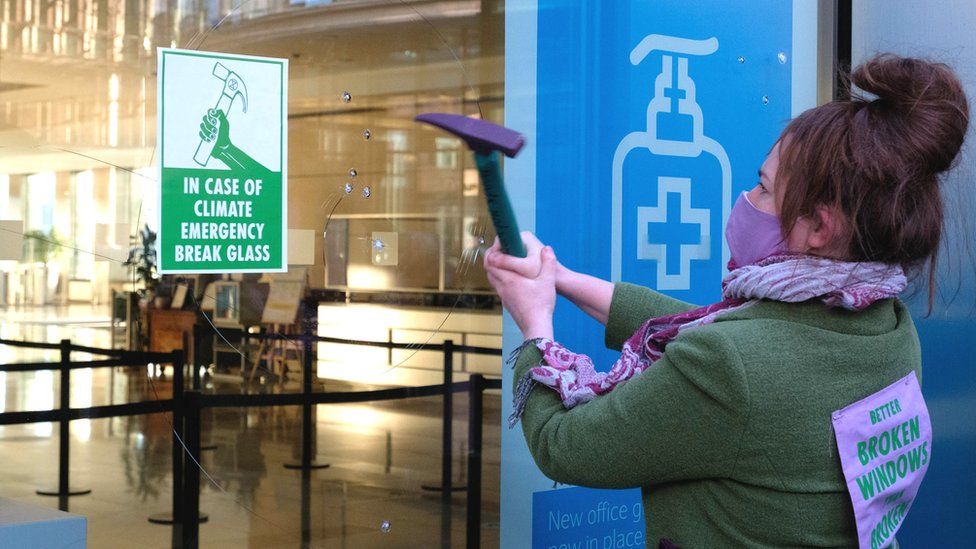
The Duke of Cambridge has urged banks to “invest in nature” to help fight global climate change.
Speaking at an IMF and World Bank meeting, Prince William said protecting nature continued to play only a small part in combating global warming.
He said investing in reforestation and sustainable agriculture were “cost effective” ways of tackling the issue.
Banks have come under increasing pressure to step up efforts to help fight climate change.
Just this week, Barclays’ London headquarters was the target of a protest staged by climate activist group Extinction Rebellion. Members held placards and broke several windows as they called on the bank to stop financing fossil fuel companies.
Addressing central bankers and finance ministers at the spring meetings of the International Monetary Fund (IMF) and World Bank, the duke said the world’s natural habitats continue to decline at an “alarming rate”.
“We cannot recover sustainably from coronavirus, eradicate global poverty, achieve net-zero emissions, or adapt to climate change, without investing in nature,” he said.
The duke said investing in nature accounted for only a “fraction of the money that is spent on the fight against climate change”.
“We must invest in nature, through reforestation, sustainable agriculture and supporting healthy oceans… because doing so is one of the most cost effective and impactful ways of tackling climate change.
“It removes carbon from the atmosphere, helps build more resilient communities, tackles biodiversity loss and protects people’s livelihoods.”
The spring meetings of the IMF and World Bank are taking place virtually this week bringing together central banks, policymakers and business leaders to discuss the state of the world’s economy.
A key focus of the discussions will also centre on climate risks and building a sustainable economic recovery post Covid.
The duke said: “All of you here at the World Bank and across each of the multilateral development banks have that crucial part to play by supporting a green, inclusive and resilient recovery from the pandemic, by valuing nature and putting it at the heart of your work, and by increasing investment in a future where the natural world can thrive.”
The decisions taken at the next UN climate change summit in Glasgow later this year will be a “vital step” in putting nature centre stage, the duke added.
The duke has become a vocal campaigner on environmental issues. He launched a competition to try to inspire people to solve “some of the world’s greatest environmental challenges”.
The Earthshot Prize will recognise ideas and technologies that can safeguard the planet offering five prizes of £1m to support environmental and conservation projects.

The duke’s comments come amid growing pressure from shareholders on banks to take a tougher stance on climate change.
HSBC announced last month it would stop financing coal projects across the EU by 2030, and all other markets by 2040, following pressure from a coalition of investment firms.
Shareholders at Barclays are set to table a resolution at the bank’s upcoming annual general meeting calling on the bank to phase out financing for coal, oil and gas companies.
Meanwhile a group of central banks are reviewing ways to use monetary policy to tackle climate change.
Options include greener asset purchases and lending schemes, according to report by the Network for Greening the Financial System.
Source BBC

